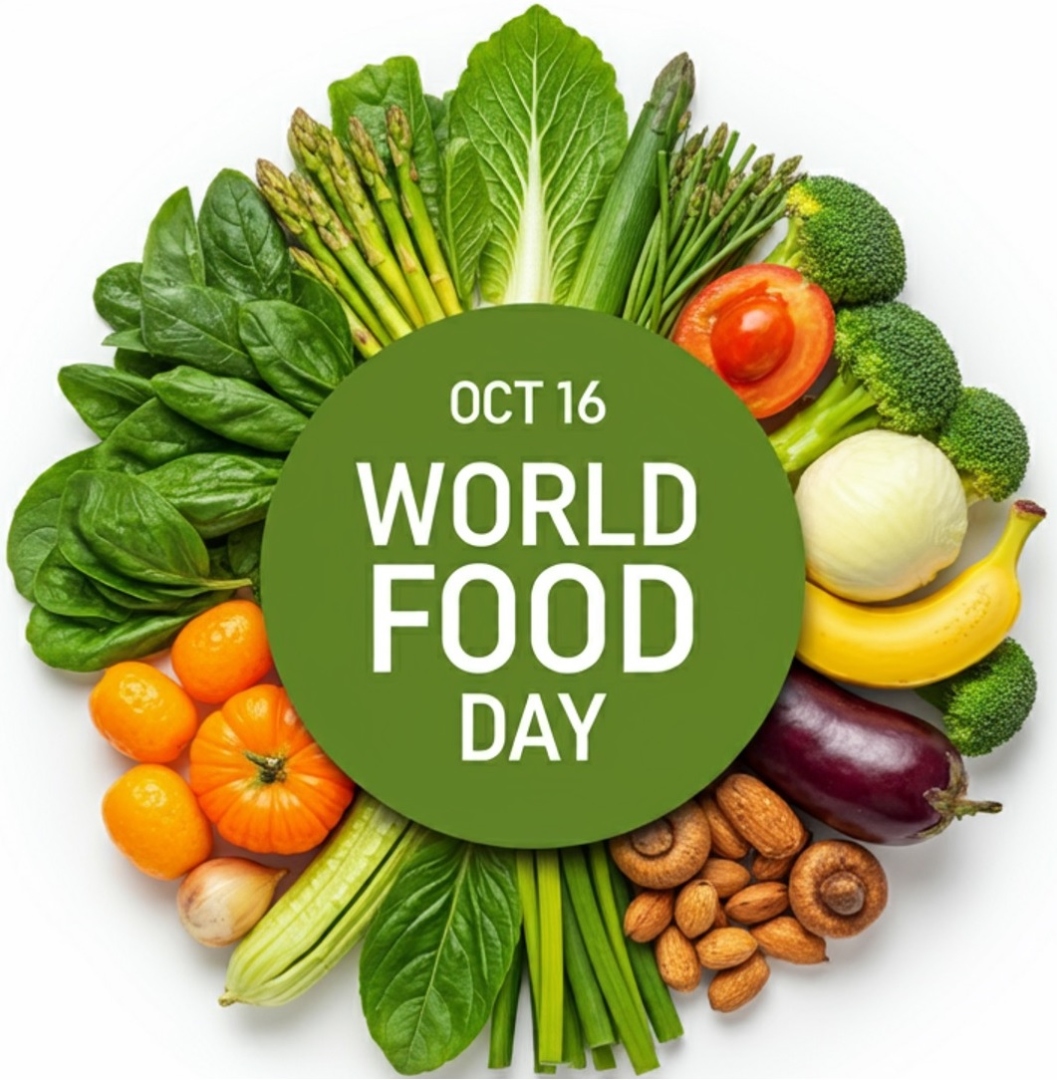
World Food Day, established by the United Nations Food and Agriculture Organisation (FAO) in 1979, commemorates the FAO's founding in 1945. This global observance focuses on raising awareness and promoting action to combat hunger and malnutrition worldwide. It underscores the urgent need for food security and equitable access to nutritious food for everyone. The day also highlights the significance of sustainable agriculture and food production in addressing global food challenges.
Food is a fundamental right, ranking as the third most basic human need after air and water. Every person should have access to adequate food, which represents diversity, nutrition, affordability, accessibility, and safety. The right to food, alongside other essential rights such as life, liberty, work, and education, is recognized by the Universal Declaration of Human Rights and reinforced by two legally binding international covenants. Addressing global hunger is not only a moral imperative but also a legal obligation, requiring urgent, coordinated global action. Ensuring a diverse range of nutritious foods in our fields, oceans, markets, and on our tables is vital for enhancing global well-being. This call for collaboration aims to create resilient, sustainable food systems that benefit both people and the planet, ensuring no one is left behind in the fight against hunger.
In 2023, FAO reported that one in eleven people globally faced hunger, with one in five people in Africa affected. This stark reality underscores the need for collective action to achieve a world free of hunger and malnutrition.
World Food Day 2024, celebrated under the theme "Right to Food for a Better Life and a Better Future," emphasises the fundamental right of all individuals to access safe, affordable, and nutritious food. The theme emphasizes that food security is vital for enhancing quality of life and creating a sustainable, healthier future. It calls on governments, organizations, and individuals to work together to end hunger and build resilient food systems for future generations.
Causes of malnutrition
Over 2.8 billion people globally cannot afford a healthy diet. Unhealthy diets are the leading cause of malnutrition, including under-nutrition, micronutrient deficiencies, and obesity, impacting nearly every country and socio-economic group. Despite the abundance of food, many individuals continue to suffer from hunger and lack access to nutritious meals.
Vulnerable populations often depend on inexpensive, less nutritious staple foods due to the unavailability or unaffordability of healthier options. Many face limited access to fresh, diverse foods, lack knowledge about healthy dietary choices, or choose convenient unhealthy options. This crisis affects individual health, strains healthcare systems, and hinders global efforts to eradicate hunger and malnutrition. Promoting affordable, nutritious diets and improving food access is essential for addressing this challenge.
Hunger and malnutrition are exacerbated by prolonged crises, often driven by a combination of conflict, climate change-induced extreme weather events, and economic shocks. Agrifood systems are particularly susceptible to these disruptions, which in turn contribute to environmental degradation by polluting and degrading soil, water, and air, as well as increasing greenhouse gas emissions and biodiversity loss.
Transforming agrifood systems offers a significant opportunity to tackle both climate change and food insecurity. By adopting sustainable practices, we can minimize environmental harm while fostering peaceful, resilient, and inclusive livelihoods. This transformation is crucial for creating a more equitable and sustainable future for all.
Steps to combat global hunger
Advocacy is key to change. Engage your community to raise awareness about food security and the right to food. Work with media to highlight efforts promoting food access and sustainable agriculture. Collective voices can influence policymakers, drive policy reforms, and create lasting solutions to hunger and malnutrition. Together, we can ensure food for all.
Choosing locally sourced, seasonal foods supports local economies and promotes sustainable agricultural practices like Swayampurna. By incorporating a diverse array of fresh vegetables, fruits, legumes, nuts, and whole grains into your diet, you can enhance your health while savoring the unique flavors of your region.
Encourage healthy eating habits among friends and family. Promoting nutritious choices enhances their well-being and supports community health, combating issues like obesity, diabetes, and heart disease. Share recipes, organize cooking sessions, or host nutrition-focused events to inspire others. Together, we can create a supportive environment for healthy living and foster a culture of wellness for all.
Practice food safety: Stay attentive to food safety by ensuring proper storage and handling. This vigilance helps reduce the risk of foodborne illnesses and ensures the safety of the food you consume.
Incorporate traditional and locally grown foods into your meals to enhance biodiversity and support local farmers. This practice preserves culinary traditions and strengthens your connection to the community and its agricultural heritage. By choosing these foods, you sustain local economies and promote sustainable farming, ensuring diverse flavors and nutritional benefits are available for future generations.
Reduce food waste: Plan meals to minimise waste and find creative ways to use leftovers, such as batch cooking or repurposing ingredients. Composting organic waste is an effective method to reduce your environmental impact by turning scraps into valuable nutrients for your garden. By adopting these practices, you support a sustainable food system, conserve resources, and decrease landfill contributions.
Get Involved in Humanitarian Efforts: Contribute to humanitarian crises through donations or volunteering. Your support can significantly impact the lives of those affected by food insecurity.
Stay Informed: Stay updated with reliable information on food security issues. An informed public is crucial for advocating effective solutions.